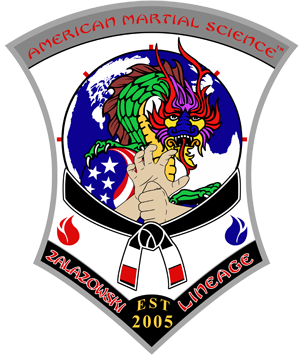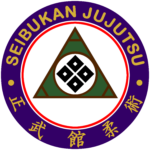UMASDA Inc.
Code of Conduct
Version 1.3 – Effective 05/15/2025

PREAMBLE
At UMASDA, we believe martial arts training is more than just physical technique—it’s a pathway to personal growth and ethical leadership. This Code of Conduct represents our commitment to excellence, safety, and mutual respect within our martial arts community. Through our motto of Respect, Commitment, and Integrity, and our guiding philosophy of Think-Know-Now, we create an environment where every member can thrive. This Code of Conduct exists to protect each member’s rights, promote safety, and ensure a culture rooted in fairness and ethical behavior. Compliance with this Code of Conduct is a condition of membership, participation, instruction, or leadership within any UMASDA school or affiliated activity. The Code of Conduct fosters a sense of belonging and accountability, shaping the experience of all involved.
As of the published date above, we recognize four distinct lineages, each requiring adherence to these standards:
- American Martial Science™ (AMS)
- Peaceful Journey Martial Studies™ (PJMS)
- Enshin Itto Ryu Battojutsu™
- IKCA Kenpo™
UMASDA is committed to full legal compliance and best practices, drawing on codes, policies, and standards from the Civil Rights Act of 1964 (Title VII), Title IX, EEOC, SafeSport, and industry norms.
As we explore the foundations of UMASDA’s standards and expectations, remember that these principles guide every aspect of our training, teaching, and community interaction. Let’s examine the core values and philosophical framework that shape our approach to martial arts education.
Table of Contents
Table of Contents
SECTION 1: GUIDING PRINCIPLES
The guiding principles of UMASDA form the bedrock of our organizational culture. These fundamental values and philosophies shape how we train, teach, and interact with one another, ensuring that every member understands and embraces our shared standards of excellence.
1.1 Core Values: Respect, Commitment, Integrity
- Respect: Every individual in UMASDA—regardless of background, identity, or experience—is treated fairly and with dignity. Discrimination, harassment, or bias have no place here.
- Commitment: Dedication to personal growth, ongoing learning, community building, and upholding our shared standards is essential.
- Integrity: We recognize that honesty, accountability, and ethical behavior in every action are non-negotiable.
1.2 Think-Know-Now
- Think: Practice mental discipline, strategic decision-making, and situational awareness in all interactions.
- Know: Develop experience-based self-awareness and realistic capability assessment.
- Now: Apply skills with present-moment focus and personal responsibility, upholding ethical behavior immediately and consistently.
1.3 Equal Treatment and Legal Compliance
All members are entitled to environments free of discrimination, harassment, and abuse as protected by the Civil Rights Act of 1964 (Title VII), Americans with Disabilities Act (ADA), and relevant state/local legislation. These protections extend to race, national origin, gender, gender identity, sexual orientation, age, disability, or any other legally recognized status.
With our guiding principles established, we now turn to specific behavioral expectations that put these values into practice. Understanding and following these standards ensures that UMASDA remains a safe, professional, and enriching environment for all members.
SECTION 2: CONDUCT EXPECTATIONS
Clear behavioral expectations are essential for maintaining the high standards of our martial arts community. This section outlines specific conduct requirements, professional boundaries, and consent protocols that protect all members and uphold UMASDA’s values.
2.1 Safe and Inclusive Environment
- UMASDA adheres to a zero-tolerance policy for harassment or discrimination—including sexual harassment, bullying, intimidation, or retaliation (per EEOC and Title IX standards).
- Retaliation against anyone who makes a good-faith report of misconduct is prohibited.
2.2 Professional Relationships & Boundaries
- Direct Instructor-Student Relationships: Romantic or sexual relationships are prohibited between instructors and their direct students (those whom the instructor teaches, evaluates, or manages).
- Example: An instructor must not enter into a romantic relationship with any student over whom they have instructional or oversight authority.
- Non-Direct Relationships: Relationships between a student and an instructor without a reporting or evaluative relationship are permitted, so long as:
- Both parties are consenting adults
- The relationship is disclosed to UMASDA leadership to avoid conflicts of interest.
- Legal Partnerships: Pre-existing legally recognized partnerships (e.g., marriage, civil union, domestic partnership) are exempt if properly disclosed and documented. The instructor-partner cannot be the sole evaluator/judge of their student-partner.
- Peer Relationships: Romantic or personal relationships among peers must respect dojo boundaries and not interfere with the learning environment.
- Transparency: Disclosure of any relationship that could affect objectivity or pose a conflict of interest is required. UMASDA reserves the right to assign instructors or evaluators as needed to avoid conflicts.
2.3 Consent and Boundaries in Training
UMASDA upholds affirmative, ongoing consent for all physical activities:
- Before New Exercises or Drills: Instructors are required to clearly describe new drills, exercises, or contact, and confirm each participant’s willingness before beginning. No one should ever be compelled or pressured to participate.
- Before Working with New Partners: Participants have the right to know about and freely consent to work with a new training partner, especially in close-contact or physically intense drills. They may refuse or request a different partner without penalty.
- Right to Withdraw Consent: Consent is specific, informed, and can be withdrawn at any time without fear of reprisal. Blanket or one-time consent is not sufficient for future drills or partners.
- Special Considerations for Minors & Vulnerable Participants: Parental/guardian consent is required for minors, and particular care is taken with sensitive or high-contact activities as guided by SafeSport and youth protection regulations.
Legal & Ethical Basis: These requirements draw from:
- Title IX/Title VII (obligation to ensure a non-hostile, harassment-free environment)
- SafeSport/NCAA guidelines (affirmative consent required for all contact drills)
- Duty of Care as established in case law (e.g., Nabozny v. Barnhill)
- Standard industry risk management (tort law, child protection statutes)
While setting expectations is crucial, equally important is understanding how we maintain accountability and ensure safety within our community. The following section details our commitment to protecting all members through clear reporting procedures and fair enforcement.
SECTION 3: SAFETY, REPORTING, AND ACCOUNTABILITY
Safety and accountability form the foundation of trust within our martial arts community. This section outlines how UMASDA protects its members through clear reporting channels, fair enforcement procedures, and commitment to maintaining a secure training environment.
3.1 Physical and Psychological Safety Standards
- Members are expected to exercise control, adapt techniques for partner safety, and be sensitive to comfort levels—especially with new activities or new partners.
- If discomfort or concern is expressed, activity must pause immediately until all are at ease.
- No retaliation, peer pressure, or negative consequences for opting out of an activity.
3.2 Reporting Procedures
- UMASDA maintains accessible, confidential reporting for:
- Harassment or misconduct
- Violations of boundaries or consent
- Safety, discrimination, or fairness concerns
- Reports will be reviewed impartially, with respect for all parties’ rights, and investigated consistent with EEOC and Title IX best practices.
- False reports or malicious accusations will be handled as policy violations.
3.3 Disciplinary Measures
- Actions for code violations may include warnings, suspension, or removal from UMASDA.
- Severe cases (including sexual harassment, abuse, or battery) are grounds for immediate termination and will be referred to law enforcement where appropriate.
3.4 Appeals and Restorative Processes
All disciplinary decisions are subject to appeal as provided for in the UMASDA Bylaws. The appeals process is conducted by the Leadership Advisory Board, consistent with standards of due process and fairness.
With safety protocols and accountability measures established, we now focus on the special responsibilities of those who lead and teach within UMASDA. Our instructors and leaders play a crucial role in modeling and maintaining our high standards.
SECTION 4: INSTRUCTOR & LEADERSHIP RESPONSIBILITIES
Leadership within UMASDA carries significant responsibility. Our instructors and leaders must exemplify the highest standards of professional conduct, ethical behavior, and commitment to student safety and growth. This section details the specific obligations and expectations for those in leadership positions.
4.1 Leadership by Example
- Instructors must model Think-Know-Now in their communication, decision-making, and response to safety or consent concerns.
- Instructors ensure every new exercise, contact drill, or partnership is only undertaken with informed, express, and revocable participant consent.
- They must complete annual training in consent, harassment prevention, and trauma-informed instruction.
4.2 Curriculum Delivery
- Each lineage—AMS™, PJMS™, Enshin Itto Ryu Battojutsu, and IKCA Kenpo—must be taught in alignment with UMASDA’s safety, fairness, and consent commitments.
- Instructors share these requirements clearly with all participants at the outset of every class, event, or seminar.
4.3 Documentation
- Where appropriate, written or digital acknowledgment of consent (e.g., via class signup, online check-in, or forms) should be collected prior to high-risk training or partner changes, especially for minors.
Through adherence to these standards and principles, UMASDA maintains its position as a leader in martial arts education while ensuring the safety, growth, and success of all members. Together, we create an environment where martial excellence and personal development flourish.
Closing Reminder
UMASDA is a community built on mutual trust and high ethical standards. By requiring true consent, you help make our schools, seminars, and events safe, forward-looking, and inclusive. When in doubt, always ask, never assume, and remember: Consent is an ongoing conversation, a legal right, and a hallmark of modern martial arts.



